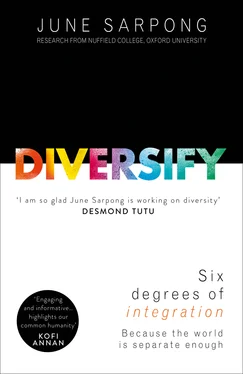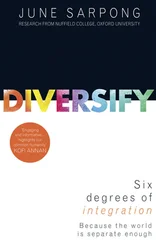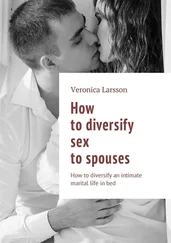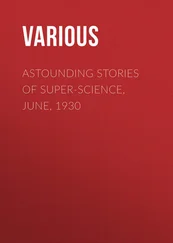While preparing to write this book, I wrote to three such ‘others’: prisoners in the UK with strikingly similar stories; young men – one black, one Muslim, one white working class – who all once had dreams that turned into nightmares. You will find their letters in response to mine at www.Diversify.org. I read their personal accounts of how life had taken them on a path that led to prison, a powerful line from philosopher Susan Griffin’s A Chorus of Stones: The Private Life of War kept running through my mind: ‘“There is a circle of humanity,” he told me, “and I can feel its warmth. But I am forever outside.”’ And this ‘circle of humanity’ excluded for them behind bars, too: The Young Report of 2014 found that: ‘Most of the prisoners, said that they experienced differential treatment as a result of their race, ethnicity or faith. Black prisoners felt that they were stereotyped as drug dealers and Muslim prisoners as terrorists.’
These three young men may not possess the tools to express themselves as eloquently as Griffin’s subject, but their words of despair and hopelessness are no less powerful. They are men who, thanks to mass social media and globalization, knew what bounties the modern world had to offer, yet felt that they and their kind were not wanted, valued, or needed. Is it any wonder they ended up where they did?
CHAPTER ONE
Colour Is Only Skin Deep
‘I refuse to allow any man-made differences to separate me from any other human beings.’
Maya Angelou
A black male child growing up in America or Europe will, by the time he reaches school, already have an understanding that he is different from the majority. Whether it’s the images he sees in the media, or family members attempting to prepare him for the exclusion he’s likely to experience outside the home, he will know that the rules are not the same for him and boys that look like him. In many cases, he will be told that anything is possible, but that he has to be twice as good and work twice as hard as his white counterparts in order to succeed and be worthy of acceptance. Many will take this message on board and strive for academic excellence in a pressured education system. Others, seeing black role models in sport, music, or some other art form, will pursue a career in that field, hoping that their talent (as has been the case with stars such as Jay-Z, Usain Bolt, Floyd Mayweather, Stormzy and Tinie Tempah) will enable them to overcome discrimination and other obstacles to success.
The men in my family experienced this first-hand. My father was gifted and well educated as a child and rose to become somebody of stature in his native Ghana, but when he arrived in Britain as an immigrant in the 1980s he had to start afresh. A political coup in Ghana meant that he had lost his position and his finances. He still had his education and experience, though, which surely would be enough for him to make a new life for himself and his family? Unfortunately not. In 1980s Britain, his thick foreign accent and skin colour meant he was visibly and audibly different from what employers assumed was right for a job in banking. There was an unwritten understanding that non-white migrants from commonwealth countries could settle in the UK to do menial or low-paid jobs that indigenous people didn’t want to do. Immigrants like my father, regardless of education and career experience, were not going to be allowed to just parachute into middle-class occupations like banking.
It soon became clear to my father that Britain was not going to be the land of opportunity he had first hoped, so he decided to take his talents and my brother to America. America did provide more opportunities, and Dad was able to secure a job in banking and then eventually launch his own successful real-estate and construction company. Perhaps America, despite its poorer record on race relations, was more amenable than the UK to the idea of social mobility for an African man.
Starting again for the second time in America was not easy, but Sam Sarpong Sr thrived against insurmountable odds and built a very comfortable upper-middle-class life, and I can’t help but beam with pride when I look at the journey he has made. A few years ago I made a pilgrimage to the rural village he was raised in, and I couldn’t fully comprehend the vast leap from where my father started in life to where he now resides. I doubt I would have had the same level of grit and strength to overcome such odds.
Life wasn’t all smooth sailing for my brother, Sam Sarpong Jr, either. African in parentage, British by birth, and raised in America – as you can imagine, he didn’t fit neatly into any particular category. As an actor/entertainer, my brother shared the desire for the visible signs of affluence – luxury cars, designer clothes, and beautiful women. However, as flamboyant as he was, during one of my visits to America I saw my brother become humble pretty fast. Driving through LA in one such luxury car, Sam was pulled over by the police. This being a regular occurrence for black men in America, Sam had his contrite responses memorized: ‘Yes sir, no sir, sorry officer,’ etc.
Witnessing this exchange and knowing the type of person Sam was, I felt upset and indignant – especially as he had done nothing wrong and there appeared to be no valid reason for the stop. My friend and mentor Baroness Margaret McDonagh – white and well spoken – was also with us in the car. As Sam delivered his usual routine, Margaret and I weren’t so agreeable, as this is not something either of us are accustomed to. We demanded the officer’s badge number and a detailed explanation as to why we were stopped. The police officer seemed taken aback, as he hadn’t expected to be met by two British women, and his tone changed immediately to become less threatening and more like a public servant. We received the badge number but no valid reason for why we were pulled over.
With US police officers being fully armed, black men in the US have to humble themselves to an almost humiliating degree to ensure their survival each time they encounter law enforcement. Regardless of the outcome of these exchanges, they serve as an overt reminder to all young black men that, whatever your achievements, aspirations, or character, you can be brought down to the level of a criminal at any time. Male pride makes this a difficult reality to live with and can generate anger in the most excluded and vulnerable black men. However, anger and resentment at authority are costly emotions that black men can ill afford in Western society. In both the UK and the US, it’s an uncomfortable truth that in spite of claims of equality and calls for fair treatment, young black men continue to be targeted for no other reason than the colour of their skin.
These stories show just how difficult it is for black men – even those of education and affluence – to negotiate life in the UK and US as an ‘other’. Their colour is always the first thing people see. But where did this obsession with race and skin colour come from? And why have we allowed it to become such a divisive and alienating factor in our society? These are fundamental questions that scientists may now be able to answer for us. And perhaps, by answering them, we can tear them down.
The false social construct of race
Anthropologist Nina Jablonski has conducted extensive studies into this issue from her research lab at Pennsylvania State University. I’ve been lucky enough to spend time with Jablonski and listen to her speak about the origins of the social construct of race, and her findings are fascinating. In her book, Living Color: The Biological and Social Meaning of Skin Color , *Jablonski investigates ‘the social history of skin color from prehistory to the present’ and finds that, biologically, ‘race’ simply does not exist. In a separate article she states, ‘Despite ever more genetic evidence confirming the nonexistence of races, beliefs in the inherent superiority and inferiority of people remain part of the modern world,’ †and she goes on to explain that the most influential ideas on the formation of historic racism came from just one man:
Читать дальше












